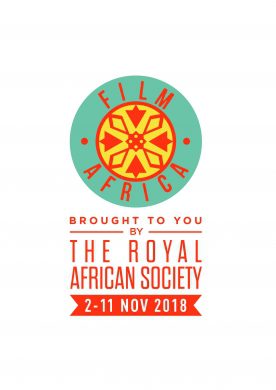I et interview via e-mail har Globalnyt spurgt en af festivalens ledere Sheila Ruiz om festivalens historie, formål og perspektiver med festivalen samt hvad ledelsen af festivalen forventer sig af fremtiden.
Festivalens historiske baggrund; om hvordan det begyndte og festivalens hidtidige udvikling
Film Africa was established by the Royal African Society in 2011 to connect emerging and established African filmmakers with diverse London audiences.
Before Film Africa was conceived, there had been other festivals and key events showcasing African cinema in London, namely Africa at the Pictures and the London Africa Film Festival, which the Royal African Society collaborated with in 2008, so Film Africa was really the result of an ongoing discussion around the need for a dedicated annual platform for African cinema.
Although things are slowly changing, the majority of African films still don’t get picked up for theatrical distribution in the United Kingdom, which means that audiences are not exposed to the plethora of stories stemming from the continent, so our aim at Film Africa is really to bridge that gap.
The Africa that is represented in the many films we screen is rich, complex, nuanced, inspiring, hopeful, and so much more! And that is not the Africa that is generally portrayed in the mainstream media, so we’re really aiming to redress the balance and offer an alternative to interested audiences.
Mål og visioner med Film Africa
The long-term aim of Film Africa is to mainstream African cinema in the United Kingdom. The population is increasingly diverse and we would like our silver screens to reflect that diversity.
So the main focus of our work is to provide platform for African films that would otherwise remain unseen by United Kingdom audiences.
This year, we’re presenting 18 World, European and United Kingdom premieres out of 39 films, which means that audiences will be seeing this work for the first – and potentially the only – time.
We are an audience festival, but we hope that through our ongoing work we can have a positive impact on the industry.
Since the festivals inception in 2011, Film Africa has screened just under 500 films and welcomed audiences of over 24,000 – and that is not counting this year’s audiences.
We also have a partnership with other African film festivals in the United Kingdom in order to raise the profile and visibility of African cinema nationally.
And in 2016, we piloted Film Africa Young Audiences, an education program aimed at inspiring and educating children, their teachers and families about the rich tapestry of African history, cultures and peoples.
Through our Young Audiences program, we also hope to build future audiences of African film, which feeds into our overall aim of mainstreaming African cinema.
Om hvordan festivalens ledelse forestiller sig fremtiden for Film Africa.
When I think of the future of Film Africa, the first image that comes to mind is growing young audiences who understand and are keen to see African cinema on the big screen.
We want Film Africa to remain a festival of discovery, so we will continue with our open submissions system through which we get a lot of emerging filmmakers’ work, especially short films.
I also think our festival awards could become more high profile and established, which would be very good for the festivals brand and would contribute towards our future sustainability.
Film Africa’s samarbejder med andre filmfestivaler og beslægtede kulturelle projekter
Film Africa is part of the consortium of African film festivals in the United Kingdom, including Africa in Motion in Scotland, Africa Eye in Bristol, the Cambridge African Film Festival and Watch Africa in Wales.
All five festivals happen around the same time and we collaborate every year to join resources and share key films and visiting filmmakers.
Through our ongoing partnership, we aim to increase access to African cinema across the United Kingdom and allow African filmmakers and films to have nation-wide tours.
Film Africa has also developed more informal relations with film festivals and other cultural initiatives taking place in Africa and our programming team has attended a number of festivals to look out for films and talent.
There is a real proliferation of cultural initiatives on the continent at present, which is really exciting, so we try to keep informed and stay connected with the latest to ensure we are programming relevant work for our London audiences.
Sheila Ruiz er Deputy Director for Royal Africa Society, som organiserer Film Africa. Royal Africa Society er en orgasanisation, der arbejder med relationer mellem United Kingdom og Afrika, og som har eksisteret siden 1901. Organisationen udgiver også tidsskriftet African Affairs. (LINK?)














